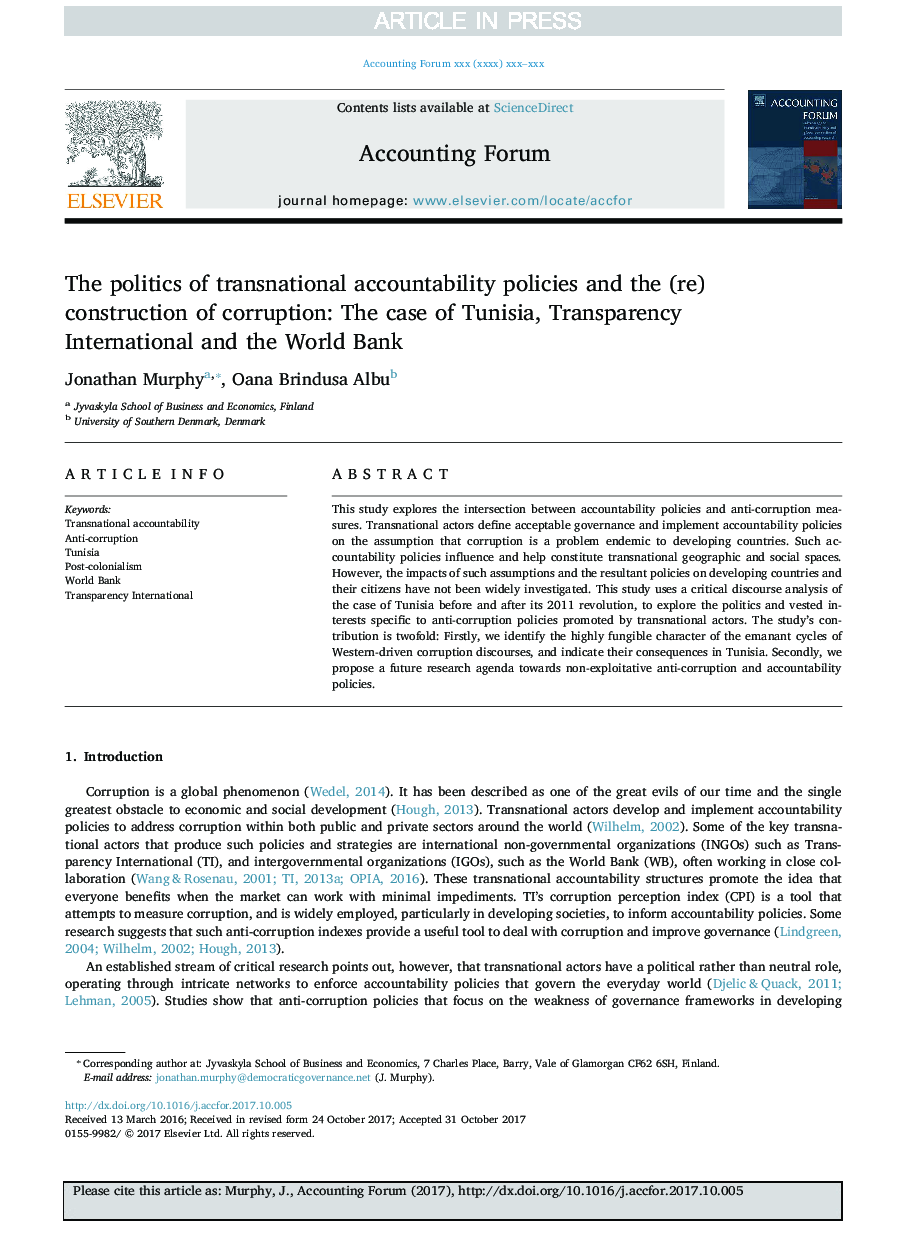| Article ID | Journal | Published Year | Pages | File Type |
|---|---|---|---|---|
| 7414292 | Accounting Forum | 2018 | 15 Pages |
Abstract
This study explores the intersection between accountability policies and anti-corruption measures. Transnational actors define acceptable governance and implement accountability policies on the assumption that corruption is a problem endemic to developing countries. Such accountability policies influence and help constitute transnational geographic and social spaces. However, the impacts of such assumptions and the resultant policies on developing countries and their citizens have not been widely investigated. This study uses a critical discourse analysis of the case of Tunisia before and after its 2011 revolution, to explore the politics and vested interests specific to anti-corruption policies promoted by transnational actors. The study's contribution is twofold: Firstly, we identify the highly fungible character of the emanant cycles of Western-driven corruption discourses, and indicate their consequences in Tunisia. Secondly, we propose a future research agenda towards non-exploitative anti-corruption and accountability policies.
Related Topics
Social Sciences and Humanities
Business, Management and Accounting
Accounting
Authors
Jonathan Murphy, Oana Brindusa Albu,
